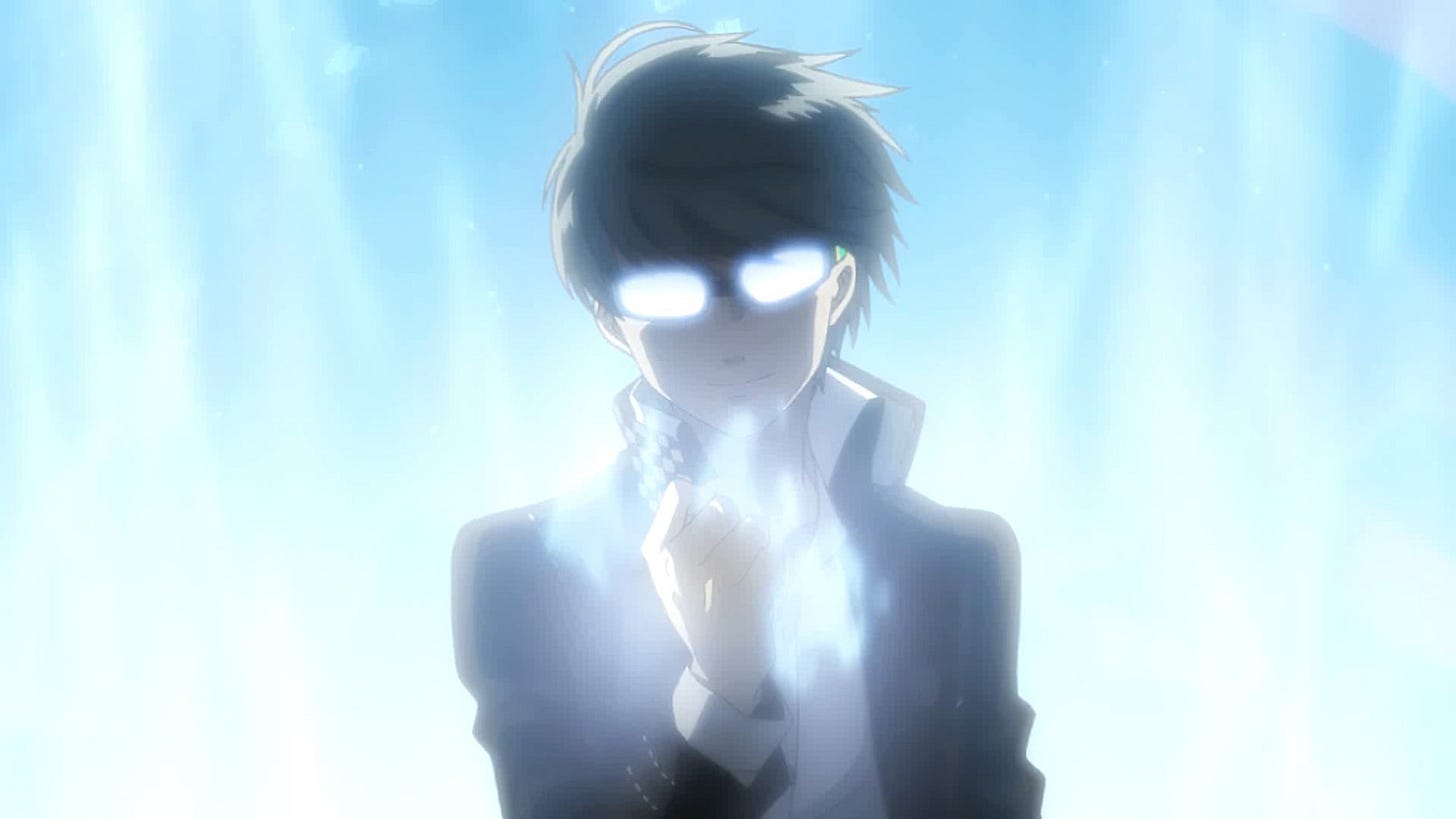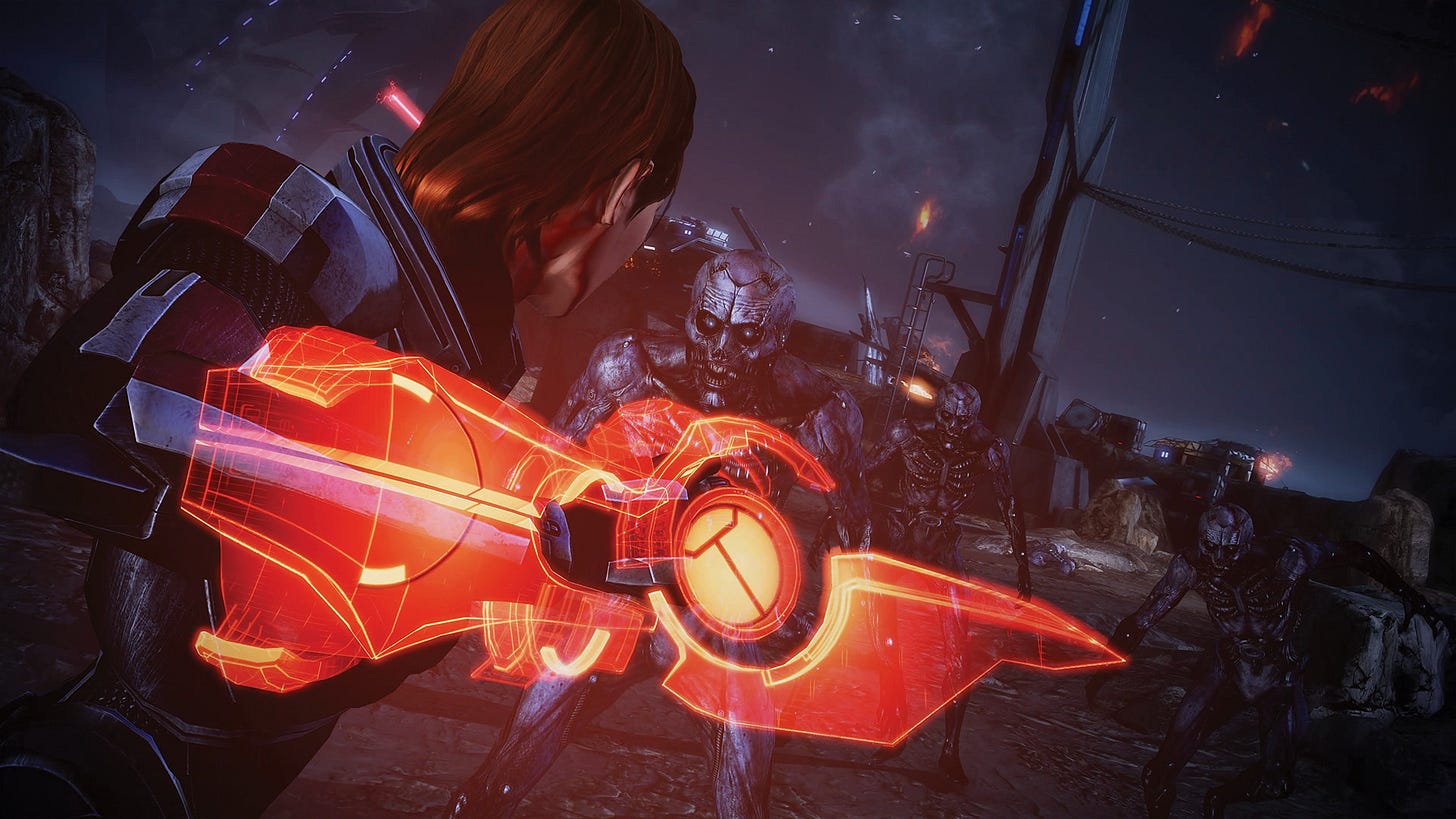I alternatingly soared and crashed through college — and games both fed my mental illness and accelerated my recovery.
During my worst semester, I had all but abandoned my studies. I sunk into video games: most ironically, Persona 4, an epic RPG about a high school student unraveling a nightmarish conspiracy in rural Japan. As I aced my classes and deepened my social bonds in the game, I watched my real-world grades and friendships slide further away. I knew I was drowning, but I felt like I’d fallen too far to reach for help.
You see, some years ago I had stumbled into the orbit of Dr. Paul Kerry (the same mentor Tara Westover wrote about in her memoir Educated, incidentally). Inspired by Kerry and his devotees, I ingratiated myself with the History department, presented at an academic conference, and transferred to a German immersion dorm, even though I hadn’t studied the language before! A summer term at Cambridge University through the exchange program Kerry orchestrated capped the whirlwind freshman year.
But I was splashing in the deep end even then. My Cambridge supervisor saw through my academic bluster and demanded a rigor I struggled to meet. While I think I won her over in the end, I didn’t have time to cultivate the scholastic seeds I had sown. I departed England for a Mormon mission to Japan, where my latent anxieties bloomed into a spiritual crisis and manic episode that sent me home early. In the proceeding depressive funk, I turned again to games.
It started as a benign, almost intellectual pursuit. I caught up with Psychonauts, remembering how fervently a friend had evangelized it. I reinstalled Baldur’s Gate 2 and Neverwinter Nights before discovering Bioware’s contemporary classics — Dragon Age and Mass Effect.
But video games tipped from being a creative medium to mindfully explore to a fog obscuring just how much I was in over my head. Psychiatrist Alok Kanojia described my own experience when he related how gaming addiction wrecked him on Here & Now.:
“I was stuck in this cycle of playing until absolute exhaustion, so that when my head hit the pillow, I passed out and I did not have to deal with the guilt, the shame, with sort of the realization that I was messing up my life… the only escape was more gaming.”
Kanojia overcame his compulsions after his parents sent him to meditate at an ashram in India. I turned the corner less dramatically and with the help of a different sort of gaming.
Board game nights became a lifeline — my sister and the few friends who regularly attended provided the social contact I desperately needed. Later, I met one of my future groomsmen at a Magic: the Gathering tournament. Even though he barely knew me, he invited me to rent a room at his group house, liberating me from a dismal basement apartment and the toxic roommate who tormented me there.
I never gave up on video games, but for years I’d say I was more invested in tabletop games because of the real connections they fostered. These days, even as I spend dozens of hours a week on my Switch, Steam Deck, or PlayStation, I do so with a purpose: to explore an emerging medium and the communities that flock to it.
But while games enrich my life now, I’m sensitive to how the worst of them rob players of their time, attention, and money (the issue is even playing out in the courts). I resonate with how Kanojia advocates that young gamers “build a life that satisfies your neuroscience, satisfies your brain, and satisfies your psychological needs.”:
“I still play games, but I don't play them addictively because my life is full. That’s what we really advocate — to create a life that is worth living.”
Read or listen here to Kanojia’s full interview on his new book, “How to Raise a Healthy Gamer.”
As a bonus, here’s a video that came out around the time I was at my lowest and helped me think through my problem gaming:
And here’s another about recent legal action around allegedly addictive game design and kids:






I had read this last year. Interesting that I returned to it exactly a year later. What a great and vulnerable posting.
I loved this essay James! Really vulnerable and honest. And it’s so interesting to hear about how games were both a safe place and a dangerous escape for you